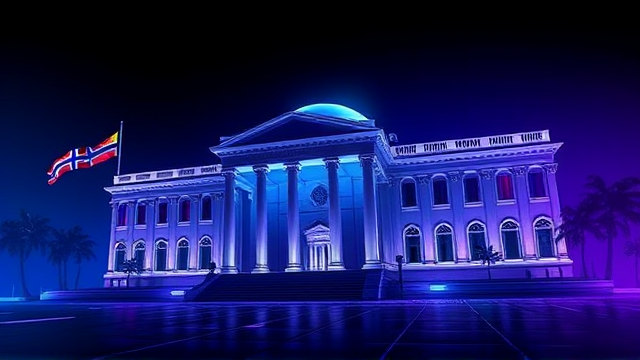Venezuela closes Norway embassy after opposition leader's Nobel award.
In a calculated diplomatic maneuver that speaks volumes through its silence, the Venezuelan government has shuttered its embassy in Oslo, a move coming just days after opposition leader Maria Corina Machado was honored with the Nobel Peace Prize. The official statement from Caracas, conspicuously devoid of any mention of Machado’s accolade, framed the closure as a mere administrative restructuring of its foreign service—a rationale that seasoned political analysts would immediately recognize as a classic piece of strategic obfuscation.This is not simply a matter of closing an embassy; it is a deliberate political statement, a withdrawal from the very nation that embodies the international principles the prize represents. The simultaneous closure of the embassy in Australia, another Western nation, while opening new diplomatic outposts in Zimbabwe and Burkina Faso, countries Caracas explicitly lauds as 'strategic partners in the fight' against 'hegemonic' powers, completes a stark geopolitical picture.This pivot away from traditional Western centers of influence toward nations often at odds with the liberal international order is a tactic with historical precedent, reminiscent of Cold War-era realignments where diplomatic presence was weaponized as ideological affirmation. The Machado situation provides the essential context: her recognition by the Norwegian Nobel Committee represents a profound external validation of her struggle against the incumbent regime, an act that Caracas evidently views not as a celebration of peace but as a direct provocation.By withdrawing from Norway, the government is executing a form of diplomatic sanction, refusing to engage with a narrative that empowers its domestic opposition. This action must be analyzed not in isolation but within the broader, protracted crisis of Venezuelan governance, a nation fractured by hyperinflation, mass emigration, and a deeply contested political legitimacy.The choice of new partners is equally telling; Zimbabwe and Burkina Faso, themselves navigating complex relationships with Western institutions, offer Caracas alliances that reinforce its anti-Western stance and potentially provide economic or political lifelines outside the established global order. The long-term consequences are multifaceted: for the Venezuelan opposition, it signals the regime's intransigence and its willingness to further isolate the nation from certain international forums; for global diplomacy, it underscores a growing trend of nations fracturing into competing spheres of influence, where diplomatic missions are no longer neutral conduits but active chess pieces in a grand strategic game. The silence from Caracas on the Nobel Prize is, in this light, more resonant than any condemnation could be, a chilling demonstration of how modern authoritarian regimes can use the architecture of statecraft to rebuke and insulate themselves from inconvenient truths and the champions of human dignity.
Latest News
The picturesque Malaysian tourist town of Kundasang, nestled in the shadow of Mount Kinabalu on the island of Borneo, has been thrust into an unwelcome
14 minutes ago0 comments
In a decisive maneuver resonating with the strategic calculus of a geopolitical gambit, the Netherlands has seized operational control of a Chinese-owned
24 minutes ago0 comments
In a stark declaration of resilience that reverberated through the financial hubs of Asia, Hong Kong’s Chief Executive John Lee Ka-chiu has projected an
49 minutes ago0 comments
The initial exchange on Monday, where Israeli hostages gained freedom and Palestinian prisoners were released from Israeli detention, represents not a
1 hour ago0 comments
The political arena in South Korea is heating up with a strategic move that feels ripped straight from the campaign war room playbook, as the conservative
1 hour ago0 comments
As China methodically drafts its 15th five-year plan, a document that will set the nation's developmental trajectory from 2026 to 2030, the geopolitical
1 hour ago0 comments
In a calculated maneuver resonating with the strategic foresight of a geopolitical chess grandmaster, the Netherlands has executed a decisive state
2 hours ago0 comments
In a decisive maneuver that sent immediate shockwaves through the geopolitical and technological landscape, the Dutch government has seized operational control
3 hours ago0 comments
It’s quiet here...Start the conversation by leaving the first comment.
